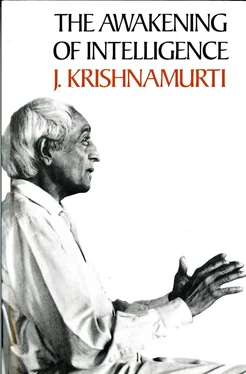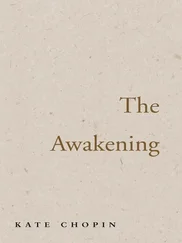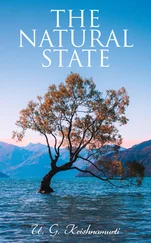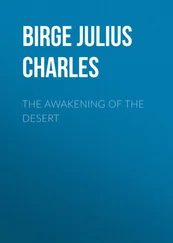BY J. KRISHNAMURTI
Beyond Violence
Education and the Significance of Life
The Ending of Time (with David Bohm)
Exploration into Insight
First and Last Freedom
The Flame of Attention
The Flight of the Eagle
Freedom from the Known
The Future of Humanity (with David Bohm)
Krishnamurti on Education
Krishnamurti’s Journal
Krishnamurti’s Notebook
Last Talks at Saanen 1985
Life Ahead
The Network of Thought
Think On These Things
Truth and Actuality: Conversations on Scienceand Consciousness
The Wholeness of Life
You Are the World
J. KRISHNAMURTI
THE AWAKENING OF INTELLIGENCE
Copyright © 2011 by: J. Krishnamurti All rights reserved.
ISBN: 1-9349-8925-8
ISBN-13: 9781934989258
eBook ISBN: 978-1-934989-30-2
QUOTATIONS
“Intelligence is not personal, is not the outcome of argument, belief, opinion or reason. Intelligence comes into being when the brain discovers its fallibility, when it discovers what it is capable of, and what it is not. Now what is the relationship of intelligence with this new dimension? . . . The different dimension can only operate through intelligence: if there is not that intelligence it cannot operate. So in daily life it can only operate where intelligence is functioning”— Part VIII, page 412 .
“When (thought) sees that it is incapable of discovering something new, that very perception is the seed of intelligence, isn’t it? That is intelligence: ‘I cannot do’. I thought I could do a lot of things, and I can in a certain direction, but in a totally new direction I cannot do anything. The discovery of that is intelligence”— Part VIII, page 411 .
“Thought is of time, intelligence is not of time. Intelligence is immeasurable”— Part VII, page 375 .
“Intelligence comes into being when the mind, the heart and the body are really harmonious”— Part VIII, page 449 .
“Is there the awakening of that intelligence? If there is . . . then it will operate, then you don’t have to say, ‘What am I to do?’ Perhaps there have been a thousand persons here during these three weeks who have listened. If they really live that, do you know what’s going to happen? We should change the world”— Part VIII, page 450 .
“When there is that supreme energy, which is intelligence, is there death?”— Part VII, page 361 .
EDITORS’ NOTE
FOR MANY YEARS J. Krishnamurti spoke to audiences of all sorts, as well as to individuals and to smaller groups, in America, Europe and India. This book was planned to indicate the wide range of his teaching and discussions. As the Talks were always extempore, with interchange of question and answer, the reports printed here were taken from tapes, so that the exact words and phrases were accurately recorded. They have been edited sufficiently to present a readable page, with some elimination of redundancies.
Several of the themes in these chapters are taken up in a different way in Conversations with four notable people interested in Krishnamurti’s ideas. These personal interviews are also reported from tapes recorded at the time.
A word should be said about the Dialogues and the small group Discussion in Chapter 10. The Dialogues are not discussions in the sense of debates or arguments, but are free exchanges between people with a common aim who are intent on understanding together with Krishnamurti fundamental problems. For instance, the five Dialogues at Saanen follow a series of seven Talks and continue the themes there initiated, clarifying or probing the issues further. It was at Saanen, Switzerland, for many years, that people gathered from all over the world to share some weeks with Krishnamurti.
The small group Discussion (Chapter 10) took place at Brockwood Park in Hampshire, England, where there is an educational centre and school for young people founded by Krishnamurti. This discussion was with people for the most part long connected with Krishnamurti in his work.
We are indebted to a number of helpers in the recording, transcribing and editing of this book.
George and Cornelia Wingfield Digby
CONTENTS
Title Page
Copyright Page
QUOTATIONS
EDITORS’ NOTE
AMERICA
Part ITwo Conversations: J. Krishnamurti and Professor Jacob Needleman
1THE ROLE OF THE TEACHER
2ON INNER SPACE; ON TRADITION AND DEPENDENCE
Part IIThree Talks in New York City
1INNER REVOLUTION
The need to change. A process in time or instantaneous? The conscious and the unconscious; dreams. The analytical process. To see the content of consciousness without the separation of observer and observed. Noise and resistance. “When there is complete cessation of division between the observer and the observed, then ‘what is’ is no longer what is.” QUESTIONS: Observer and observed; fragmentation; resistance.
2RELATIONSHIP
Relationship. “You are the world”. The separate self; corruption. To see what actually “is”. What love is not. “We have no passion; we have lust, we have pleasure.” To understand what death is. Love is its own eternity. QUESTIONS: The concept of good and bad; sharing; pain and fear: how to be free of the past?
3RELIGIOUS EXPERIENCE. MEDITATION
Is there a religious experience? Search for truth; the meaning of search. “What is a religious mind?” “What is the quality of mind which is no longer experiencing?” Discipline; virtue; order. Meditation is not an escape. The function of knowledge and freedom from the known. “Meditation is to find out if there is a field not already contaminated by the known.” “The first step is the last step.” QUESTIONS: The analogy of dirt; awareness; consciousness; love; psychological time.
Part IIITwo Conversations: J. Krishnamurti and Alain Naudé
1THE CIRCUS OF MAN’S STRUGGLE
2ON GOOD AND EVIL
INDIA
Part IVTwo Conversations: J. Krishnamurti and Swami Venkatesananda
1The guru and search. Four schools of Yoga scrutinised (Karma, Bhakti, Raja, Gnana Yoga).
2Four “mahavakyas” from the Upanishads discussed. Communication and the Bodhisattva ideal. Vedanta and the ending of knowledge.
Part VThree Talks in Madras
1THE ART OF SEEING
To see , not partially but totally. “The act of seeing is the only truth.” Of the vast mind only a fragment is used. The fragmentary influence of culture, tradition. “Living in a little corner of a distorted field.” “You cannot understand through a fragment.” Freedom from “the little corner”. The beauty of seeing .
2FREEDOM
To share a free mind. “If we could come upon this, it is really a mysterious flower.” Why has man not got this thing? Fear. “Living” is not living. Words taken for substance. Wastage of energy. “The mature mind has no comparison … no measure.” The validity of “the life that you lead every day . . . without understanding it you will never understand love, beauty, or death”. Through negation that thing which alone is the positive comes into being.
3THE SACRED
Ploughing, never sowing. Ideation. Sensitivity lacking in daily life. Attention and intelligence. Disorder in ourselves and the world: our responsibility. The question of seeing . Images and direct contact. The sacred. “When you have that love you can put away all your sacred books.”
Part VIFour Dialogues in Madras
1CONFLICT
Images: are we aware that we see through images? Concepts; the gap between concepts and daily living; resulting conflict. “To get illumination you must be able to look.” “To live without conflict, but not to go to sleep.”
Читать дальше












